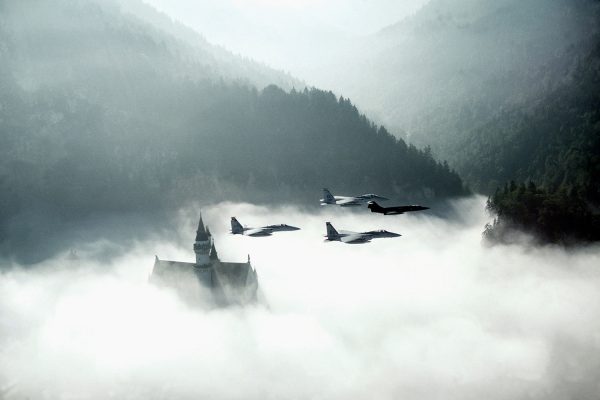
When President Donald Trump announced his intention to strike Syria in mid-April, Angela Merkel quickly excluded German participation in the attacks even though she publicly proclaimed support for her allies’ action.
Yet after the airstrikes were conducted by the United States, Britain and France, Germany’s defense minister, Ursula Von der Leyen, said the Bundeswehr could have been taken an active role after all.
Her statement seemed designed to stave off questions about Germany’s military readiness and willingness to support its allies.
Von der Leyen claimed the only reason Germany hadn’t joined the airstrikes was that it hadn’t been asked.
This is doubtful.
Questionable
The political class in Berlin talks about taking up more responsibility, but military interventions are still hugely unpopular in German society. A YouGov poll conducted in 2014 found that support for a bigger military role is low. Since then, the challenge to the center by anti-establishment and anti-NATO parties has only grown.
There are also doubts about Germany’s military capacity. Its armed forces are relatively small. Equipment is outdated. Germany hasn’t flown bombing missions since the end of World War II. Since the end of the Cold War, it has cut defense spending deeper than most NATO states. It is nowhere near meeting the alliance’s 2-percent spending target. Von der Leyen’s claim that German air forces could spontaneously perform on par with the British is questionable at best.
Outlook
The last few years have seen an upturn in military spending, driven by Merkel’s and Von der Leyen’s Christian Democratic party. However, on the current trajectory, it will still take years for Germany to match British and French — let alone American — spending levels.
The inclusion of the Social Democratic Party in the current government does not bode well for defense. It rejects the 2-percent target altogether and treats military modernization as a side issue. The push for a bigger military footprint by conservative officials like Von der Leyen may therefore be considered rhetorical.
Germany could assume a greater peacekeeping responsibility in the UN. Additional mission support for allies may also be in the cards, as long as the use of German forces can be portrayed domestically as limited and non-combat oriented.
But German military power will remain below its potential for the foreseeable future. As a consequence, the country will continue to be regarded as a security free-rider by its allies.
